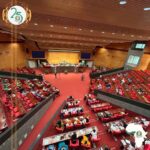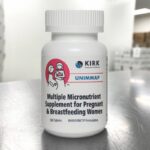DICON-D7G: Developing viable military industrial complex in Nigeria
By Sumaila Ogbaje, News Agency of Nigeria (NAN) Nigeria’s quest for self-reliance in military hardware and technology recently received a significant boost with the Defence Industries Corporation of Nigeria (DICON) and the D7G joint venture. On Jan.18, 2024, DICON and D7G Limited signed a Memorandum of Understanding (MoU) to establishContinue Reading












